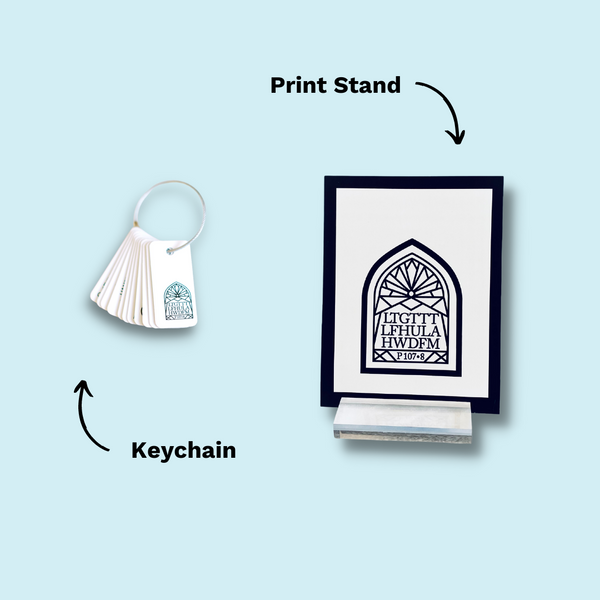"BUT TO YOU WHO ARE LISTENING I SAY: LOVE YOUR ENEMIES, DO GOOD TO THOSE WHO HATE YOU." — LUKE 6:27
“Do you believe in ‘fair is square’?”
I’ll never forget when my three-year-old son Silas asked us this question. We were in a shoe store, back to school shopping with all five of our kids (ages three to eleven). Think chaos. Think bargaining. Think whining. Think sweaty apologies to other customers. We were just trying to get out of there in the least disruptive, quickest way possible when Silas started attacking his brother Ezra. Yikes! My husband, Jason, broke them apart and told Silas to sit in time out. To this he responded, “Do you believe in ‘fair is square’?” Stifling a chuckle at his misquote of the phrase, Jason said, “Yes. Yes, I do.” Then Silas said, “If you believe in ‘fair is square,’ Ezra should be in time out too. He called me a name.” Well, of course, Jason put Ezra in time out too. How can you argue with this three-year-old’s astute argument? It was only fair. It was only right. And it was hilarious! And so this story, and his question, became a part of our family lore. We still ask each other if we believe in “fair is square” when things feel unjust in our home. So let me ask you this:
Do you believe in “fair is square,” or, to put it rightly, “fair and square”?
The real question I’m asking is this: Do you believe in fairness? I would venture that you do. The concept of “fair and square” is woven into the very fabric of our society. We’ve even generally adopted the biblical concept of the Golden Rule that we find in Scripture. It says, “Do to others as you would have them do to you” (Luke 6:31). There’s a “fairness” we Americans love in this pithy little phrase, an equality that strikes a chord with us. In fact, it takes fairness one step further than “fair and square”: the Golden Rule is more generous—encouraging not only fairness but even a magnanimous treatment of others. Wouldn’t the whole world be a better place if we’d just all follow the Golden Rule?
But what does all of this have to do with our verse for the month?
Our verse for the month takes the Golden Rule to a whole new level. It tells us this, “But to you who are listening I say: Love your enemies, do good to those who hate you” (Luke 6:27). It’s a verse that bumps ups against our human desire for fairness and frankly pushes it further than we really want to go. Seriously? Love my enemy? Do good to someone who hates me? I think I’ll pass and just stick to the Golden Rule, thanks. Here’s the thing though, something I didn’t realize until looking further into the context of our verse: these verses are right next to each other and inform one another. Let’s read the whole context, and then I want to help you see how they fit together.
“But to you who are listening I say: Love your enemies, do good to those who hate you, bless those who curse you, pray for those who mistreat you. If someone slaps you on one cheek, turn to them the other also. If someone takes your coat, do not withhold your shirt from them. Give to everyone who asks you, and if anyone takes what belongs to you, do not demand it back. Do to others as you would have them do to you.”
—Luke 6:27-31
I just have one question for you: Who are the “others” in that last sentence? Do you see from the context that the others are our enemies (for more on the wider context, be sure to subscribe to our podcast, and listen to this Wednesday’s upcoming episode)? The Golden Rule is the final sentence in the paragraph and the summation of loving our enemies! “Love your enemies” and “do to others as you would have them do to you” are part and parcel with one another. We aren’t just supposed to treat “others” generally as we would want to be treated (although we should be doing that), but we are to treat our enemies this way—the hardest people to love, the people who hate us and mistreat us and who take our stuff. This is the true essence of the Golden Rule: Do to your enemies as you would have them do to you.
One more thing.
There’s a sticky part that I just have to bring up. There’s an implication here for us in the way this is worded. Remember how we looked at the Golden Rule? We treat others how we want to be treated because they are just like us. But what if the “others” are our enemies, those easily hated people? What does that make us? We are just like them. We are just as unlikeable. We’re the ones cursing others (maybe just under our breath). We’re the ones mistreating, even hating others (maybe just in our heads and hearts). The reason the Golden Rule is so popular is that we assume that we are “good” people who are called to be nice to other similarly “good" people. But this is simply not the case—we are unlikable people, called to love the people we don’t even like.
This is aggressive.
I know this has to be rubbing you the wrong way. I wince to even write it out. Bless the person who curses you. Pray for the one who mistreats you. Give your unspoiled cheek to the one who slaps you. And also, you are that guy. I’m that guy too—the one doing those kinds of things that make us enemies. These are some pretty stark images. How can we understand them? How can we love our enemies? How can we stop acting like enemies? We’re going to flesh this out in the coming weeks, but for now, let me encourage you by reminding you who gave us this call to love the unlovable.
Jesus.
Jesus said love your enemies, Jesus said treat others like you would want to be treated—Jesus, who didn’t merely give directives from heaven, but lived them out—Jesus lived and loved like this. Jesus loved us when we hated him. Jesus blessed us though we cursed and mocked him. Jesus gave us not only his uninjured cheek but his whole self, and we bruised and bloodied him. “While we were still sinners [enemies of God], Christ died for us” (Romans 5:8). Jesus didn’t treat us fairly—which is actually really good news because that would’ve meant eternal separation from him—rather, he was merciful and loving, inviting us to be near him and experience forgiveness and peace. And because we are enemies who have been loved like this, we can (and should) love our enemies like this.
How might Jesus’s love toward you help motivate you to love your enemy?
Who’s one person you struggle to love? Pray that God would help you love them.




